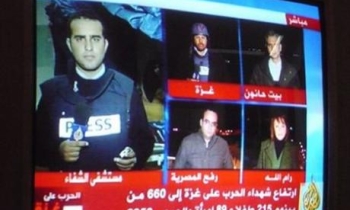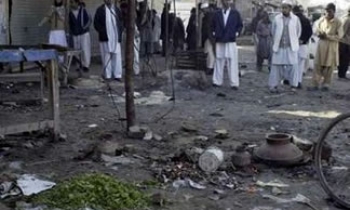Various media outlets in Arauca continue to face difficulties following the insistence by the guerrilla group Revolutionary Armed Forces of Colombia (Fuerzas Armadas Revolucionarias de Colombia, FARC) that they broadcast a FARC press release or face being declared military targets.

On the morning of August 9, during a call-in programme broadcast by the Saravena-based radio station Sarare Estéreo, a person called in, identified him or herself as a FARC member, and proceeded to read the press release that the station had refused to broadcast. To protest this action, the station suspended its August 10 broadcasting, Fundación para la Libertad de Prensa (FLIP) has reported.
As well, in the city of Arauca - capital of the department of the same name - La Voz del Cinaruco radio station journalists received a call from a FARC member urging them to read the press release on air. However, the journalists refused, limiting themselves to reporting on the development.
The journalists told FLIP that the authorities are evaluating the authenticity of the pamphlet previously sent, allegedly by the guerrilla group. The national government announced that special protection measures will be taken by the interior ministry. FLIP will monitor the implementation of the security measures.
The journalists said during a meeting with an Army battalion operating in Arauca, members of the armed forces expressed anger that the media outlets had referred to FARC's pronouncements at all, even insinuating that the journalists may be committing the crime of "being apologists for terrorism." They urged media outlets to not cover information from FARC.
A FLIP statement said it disagrees with the manner in which some members of the Army in the area have joined in the harassment of the journalists by insinuating that they are committing crimes. Since the FARC press releases arrived at the local radio stations, it has been the journalists themselves who have publicly criticised FARC's interference with journalists' work, it said.
“Journalists are facing deadly violence in Colombia and the government must make good on its promises to protect them,” said International Federation of Journalists (IFJ) General Secretary Aidan White. “While media are being bullied by armed groups to broadcast political messages with threats to the safety of employees press freedom cannot survive. The government must intervene urgently.”
Acording to IFJ, after the threats two radio stations in Arauca broadcast the contents of the pamphlet but they warned their audiences in advance that they were doing it after threats by the guerrilla group. But another journalist, Álvaro Pérez García, director of Meridiano 70 radio station, said he would not broadcast the pamphlet text and criticised its content.
Two Meridiano 70 journalists have been killed in the last four years due to their work. Another station, Sararé Estéreo, received several phone calls from a man who identified himself as a FARC spokesperson and demanded a complete reading of the pamphlets or said that if the station does not read it, its reporters will have to “face the consequences.”
“We vehemently condemn this authoritarian attack of the guerrilla against the free exercise of journalism,” said Eduardo Márquez, President of the Colombian Federation of Journalists (FECOLPER) and director of the IFJ Solidarity Centre in Colombia. “To the colleagues in Arauca, we assure them they are not alone: they can count on the support of our more than 1000 members throughout the country and the 600.000 members of the International Federation of Journalists in the world,” Marquez said.









